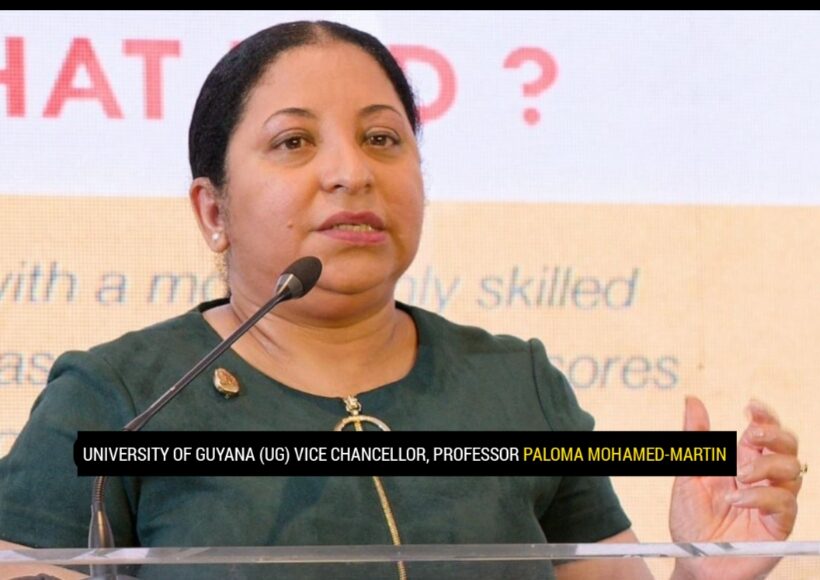With Guyana being a small population of about 800,000 people, blessed with abundant natural resources, University of Guyana (UG) Vice Chancellor, Professor Paloma Mohamed-Martin, believes that within five years, every Guyanese should enjoy a dignified life, achieved through a balanced focus on economic growth and investment in human resources.
“We have this beautiful opportunity of all these natural resources. We have a small population, and this gift that it could be…Every time there is a threshold of opportunity, there’s always a threshold of catastrophe on the other side,” she said during her appearance on the Energy Perspectives Podcast.
Guyana’s oil wealth has drawn increased global attention, complementing its long-established mining sector rich in gold and other minerals.
Professor Mohamed-Martin, stressed that while the country stands at a historic turning point, maintaining a careful balance in its development is crucial. She underscored that Guyana needs to navigate the nation’s current opportunities and challenges cautiously. She believes that education and human resources development should be at the heart of Guyana’s development strategy.
Professor Mohamed-Martin explained that the challenge lies in managing econometrics. The real difficulty, she noted, is ensuring a balance between infrastructure and capital development on one hand, and human development on the other. “Because the humans cannot wait five years and 10 years for things,” the Vice Chancellor said, pointing to the difficulty of managing rapid economic expansion without overheating the economy.
Professor Mohamed-Martin also underscored the importance of walking a very careful path, not only for those in leadership but for everyone. Despite the challenges, she expressed optimism, stating that Guyana has abundant resources that must be carefully shared with all.
She added that in five years, “I don’t believe that any Guyanese should be without. Every Guyanese should be in a place where they have a dignified life.”
Moreover, Professor Mohamed-Martin stated that she does not believe that Guyana’s situation is similar to any other country, but noted that Guyana could avoid the pitfalls experienced by other countries by learning from their mistakes.
“But we could certainly learn what not to do, but what not to do in a different context means that we have to really spend a lot of time studying very carefully ourselves and taking the advice of others with real careful objective, empirically driven data from our own experience,” she said.
The Vice Chancellor also emphasized the role of the UG and other academic institutions in producing the research needed to guide the nation’s development. “We have to give credence to our own scholars,” she said.













